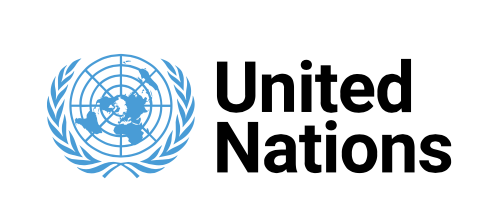UN experts welcome first Latin American and Caribbean Tax Summit

GENEVA (25 July 2023) – UN experts* today welcomed the upcoming first Latin American and Caribbean Summit for an Inclusive, Sustainable and Equitable Global Tax Order to be held in Cartagena de Indias, Colombia, on 27-28 July 2023. They issued the following statement:
“The regional initiative aims to agree on common tax standards to combat illicit financial flows, tax evasion and avoidance, and other shared problems, such as rising poverty, inequality, and the climate emergency. In addition, under the Secretariat of the United Nations Economic Commission for Latin America and the Caribbean (ECLAC), the initiative will hopefully serve as a permanent, transparent, and inclusive decision-making platform for regional tax cooperation.
We call on all States to engage decisively in these regional tax negotiations to ensure compliance with their obligations to mobilise their maximum available resources to respect, protect and fulfil human rights at the national and extraterritorial levels; to raise sufficient resources to finance quality public services, including social protection, education and health, that enable the full enjoyment of all human rights; to ensure a gender-responsive and just transition; and to promote inclusive and sustainable development.
In particular, we urge States to:
- Strengthen coordination mechanisms for global tax negotiations, including by supporting the discussions towards a UN Tax Conventionto deepen multilateral reforms, in particular in the area of global economic governance, that seek to achieve greater equity in the global tax system, in line with the Guiding Principles on Human Rights Impact Assessment on Economic Reforms.
- Promote tax progressivity and undertake tax reforms in Latin American and Caribbean countries that tax wealth and capital income to avoid tax competition (race to the bottom practices) and promote economic equality.
- Fight tax havens and illicit financial flows including by combating tax evasion and avoidance through “tax havens”, as part of the duty of States to mobilise the maximum available resources to fulfil human rights. Ensure that independent judicial systems can effectively combat illicit financial flows and recovery of stolen assets.
- Agree on green taxes and undertake coordinated fiscal policies on fossil fuels, carbon emissions and on taxes on extractive industries and transitional minerals, with the aim of maximising public benefits from these sectors.
- Strengthen participation and accountability: Latin American and Caribbean countries should promote public participation in decision-making processes related to taxation. This includes promoting active, free and meaningful participation of civil society organisations, especially those led by women, human rights defenders, affected communities, and marginalised groups in tax negotiations. Their perspectives and voices must be heard to ensure that tax policies and agreements are inclusive, transparent, and accountable.
- Ensure transparency: including by implementing beneficial ownership registries in all countries, with public access, using homologated standards and without minimum thresholds, as a preliminary step to articulating a regional registry of global assets.
We wish to remind States and business enterprises of their respective obligations and responsibilities to protect and respect human rights, including in the context of their fiscal decision-making processes, and ensure that their tax policies are in line with their human rights commitments and relevant international standards, including the United Nations Guiding Principles on Business and Human Rights. This is a unique opportunity for Latin America and the Caribbean to strengthen coordination on tax issues and join forces to ensure that States can meet their human rights obligations; address negative human rights impacts of business enterprises; strengthen access to quality public goods, facilities and services; and prevent and respond to the climate emergency.”
ENDS
*The experts: Attiya Waris, Independent Expert on the effects of foreign debt and other related international financial obligations of States on the full enjoyment of all human rights, particularly economic, social and cultural rights; Farida Shaheed, Special Rapporteur on the right to education; Margaret Satterthwaite, Special Rapporteur on the independence of judges and lawyers; Irene Khan, Special Rapporteur on freedom of opinion and expression; Tomoya Obokata, Special Rapporteur on contemporary forms of slavery, including its causes and consequences; Ravindran Daniel (Chair-Rapporteur), Sorcha MacLeod, Jelena Aparac, Chris M. A. Kwaja, Carlos Salazar Couto Working Group on the use of mercenaries; Damilola Olawuyi (Chair), Robert McCorquodale (Vice-Chair), Fernanda Hopenhaym, Elżbieta Karska, and Pichamon Yeophantong,Working Group on Business and Human Rights; David Boyd, Special Rapporteur on human rights and the environment; Obiora Okafor, Independent Expert on human rights and international solidarity; Surya Deva, Special Rapporteur on the right to development; Ian Fry, Special Rapporteur on the promotion and protection of human rights in the context of climate change; Tlaleng Mofokeng, Special Rapporteur on the right of everyone to the enjoyment of the highest attainable standard of physical and mental health; Mary Lawlor, Special Rapporteur on the situation of human rights defenders; Dorothy Estrada Tanck (Chair), Ivana Radačić (Vice-Chair), Elizabeth Broderick, Melissa Upreti, and Meskerem Geset Techane, Working Group on discrimination against women and girls; Alexandra Xanthaki, Special Rapporteur in the field of cultural rights; Michael Fakhri, Special Rapporteur on the right to food;Reem Alsalem, Special Rapporteur on violence against women and girls, its causes and consequences; Olivier De Schutter,Special Rapporteur on extreme poverty and human rights;Muluka-Anne Miti-Drummond, Independent Expert on the enjoyment of human rights by persons with albinism.
Special Rapporteurs are part of what is known as the Special Procedures of the Human Rights Council. Special Procedures, the largest body of independent experts in the UN Human Rights system, is the general name of the Council’s independent fact-finding and monitoring mechanisms that address either specific country situations or thematic issues in all parts of the world. Special Procedures’ experts work voluntarily; they are not UN staff and do not receive a salary for their work. They are independent of any government or organisation and serve in their individual capacity.
Concerned about the world we live in?
Then STAND UP for someone’s rights today.
#Standup4humanrights
and visit the web page at http://www.standup4humanrights.org





